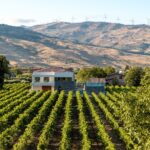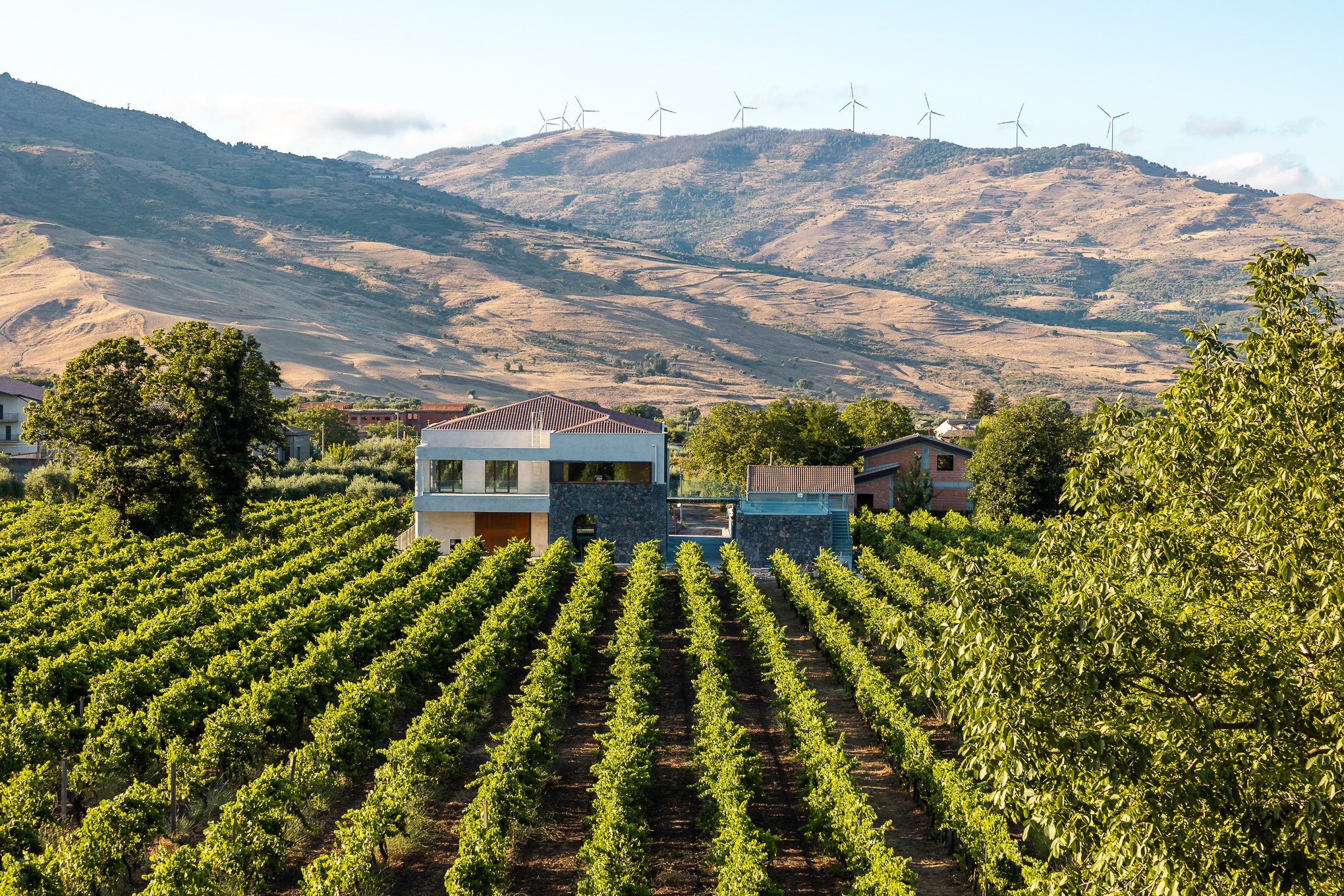
This is How the Sicily of Wine Manages Climate Change
Assovini Sicilia, Sicilia DOC wines Consortium and SOStain Sicilia Foundation, during Expo Divinazione at the G7 in Syracuse, show the commitment of the Sicilian wine-growing sector to tackling the challenges of climate change and launch an appeal to the institutions to find a solution to the problem of water shortage Palermo, 11th October 2024 – «The Sicily of wine has taken up the challenge that climate change has posed and, through research, experimentation, sustainability and the enhancement of biodiversity, is trying to handle one of the most difficult moments for Sicilian viticulture». With these words, Antonio Rallo, president of the Consortium for the Protection of Sicily DOC Wines, opened the conference “Resilience, Research, Strategy: Sicily Deals with Climate Change“, held in the Sala Borsellino of the Municipality of Syracuse on 22 September during the Expo Divinazione, on the occasion of the G7 Meeting on Agriculture. “Wineries and agriculture in general have recently implemented various initiatives aimed at limiting the damage caused by climate change, which is affecting them more and more. We believe it is right to give voice to this work and call for decisive intervention on the part of the institutions to implement a plan for large-scale infrastructure work that is now ever so urgently needed,” added Antonio Rallo. Assovini Sicilia, the Consortium for the Protection of Sicily DOC wines, and the SOStain Sicilia Foundation came together to focus on the actions and strategies implemented by the winemaking world. «The context in which Sicily’s wine industry is moving is increasingly evolving», explained Dr. Luigi Pasotti, Director of the Catania Task Group of the Sicilian Agrometeorological Information Service, giving a detailed explanation of the island’s water situation, which is linked not only to reduced rainfall but above all to the increase in temperatures. The situation of the climate in Sicily is quite complex and climate change has clearly manifested itself in recent years through various phenomena – continues Pasotti. In 2023, there was an increase in rainfall during the spring period, which favoured the spread of fungal diseases, such as downy mildew. In 2024, the opposite condition occurred: a lack of rain starting in January, together with the increase in temperatures, led to an early grape harvest. High temperatures have caused a change in the levels of evapotranspiration of the soil. This tendency has increased drastically in the last 10 years, which may create future problems because the soil is unable to retain water and, consequently, the plants suffer more. In the future, we will have to think not only about covering and protecting the grapes but also about finding ways to safeguard and protect the soil and increase water reserves in order to cope with a rise in temperatures“, concluded Luigi Pasotti. “In this scenario, the active intervention of the wineries becomes fundamental, as they are the first sentinels of a territory that increasingly needs attention and rapid interventions that are often delegated to private individuals“, added Mariangela Cambria, president of Assovini Sicilia, who emphasizes the good practices of Assovini Sicilia wineries in handling climate change.

According to a survey conducted by the University of Messina for Assovini Sicilia, 80.5% of its members have introduced new technologies and methodologies in winemaking and vineyard management, 22% participate in experimental projects in the vineyards; 20.3% have initiated projects with research institutions to access cutting-edge technologies applicable in the field that can affect the quality of the products. “Winemaking Sicily – continues Mariangela Cambria – demonstrates innovation and competence in knowing how to face and manage future challenges that have an impact on the world of wine, challenges such as climate change. The work of Sicilian producers demonstrates that Sicilian winemaking looks to the future and continues to guarantee quality production“. And Giuseppe Bursi, vice-president of the SOStain Sicilia Foundation, founded in 2020 on the initiative of Assovini Sicilia and the Consortium for the protection of Sicily DOC wines, spoke about a sustainable future. “As the SOStain Foundation, we were born with the clear objective of promoting the sustainability of the Sicilian wine sector; this concept does not only concern the agricultural activity itself but goes beyond the boundaries of the fields that are cultivated since it also concerns the well-being of workers and the health of consumers, the involvement of local communities, the enhancement of the surrounding territory, the conservation of natural resources – comments Bursi. Closely linked to the topic of climate change, among the 10 minimum points required in our specifications, we ask for the application of the VIVA programme. Wineries must calculate, at an organisational level, the impact of their activities on environmental factors such as water, air, and vineyards, as well as adopt water and energy saving strategies. Wineries are increasingly learning to be virtuous in resource management and to look to the future with a commitment that is not only business but also social”, concluded Giuseppe Bursi. «The Consortium is also working ever more actively, promoting research projects that address climate change through innovation – continued Antonio Rallo, president of the Consortium for the Protection of Sicily DOC Wines – alongside the actions undertaken by the wineries, the Consortium promotes the research projects Bi.Vi.Si, VISTA Lucido and Germplasm vine cultivation carried out in collaboration with IRVO, the Universities of Palermo and Milan, the Department of Agriculture of Sicily, and Assoenologi (Association of Enologists)». «We are proud of the three research projects we have been carrying out in recent years – adds Giuseppe Figlioli, enologist and advisor to the Consortium – The grapes of the VISTA Lucido project, coming from various terroirs in Sicily where the Lucido variety grows, have been used for the future production of fine wines and sparkling wines with the Charmat Method. Regarding the Bi.Vi.Si project, instead, we are proceeding with winemaking at the research centre of the University of Enology of Marsala, using the Grillo, Nero D’Avola, Lucido, Vitrarolo and Lucignola vines, all native Sicilian varieties. Finally, for the Germplasm project, we have selected, collected and stored the propagation material in special maintenance cells, or screen houses, in such a way as to have a basic database for the varietal and clonal choice for Sicilian winemaking of the future». “All this dynamism on the part of the wine sector, however, cannot fail to see the institutions at the forefront”, adds Antonio Rallo, president of the Consortium for the Protection of Sicily Doc Wines in his concluding words – “The lack of water and the increase in temperatures, which in recent years have had a direct impact on all agricultural production, require urgent solutions and interventions. We are facing a water crisis that requires water rationing in the city of Palermo, yesterday’s news, even though rain has returned in August and September. Unfortunately, even today, most of the rainwater on the island ends up in the sea. Therefore, there is a need for a significant increase in public investment aimed at creating hillside lakes, restructuring existing dams to increase their storage capacity, constructing large basins and improving the water distribution network. Regional and national institutions can and must promote these measures to ensure a sustainable future for Sicilian wine companies and for all farmers” concludes Antonio Rallo.
G7 Expo DiviNazione 2024
From 21 to 29 September 2024, Assovini Sicilia, the Consortium for the Protection of Sicily DOC Wines, and the SOStain Sicilia Foundation will be present at the Antico Mercato in Ortigia (Stand 9).
The post Innovation, Research, Experimentation first appeared on Vertdevin.









